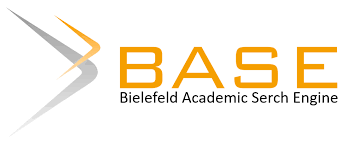IMPLEMENTASI TOTAL QUALITY MANAGEMENT TERHADAP BUDAYA KUALITAS
(1) STIE Palangka Raya
(*) Corresponding Author
Sari
Total QualityManagement (TQM) is a new paradigm in running a business with the goal to maximize organizational competiveness through focuses on consumer satisfaction, all employee engagement, and sustainable improvement on quality of products, services, human, process and organizational environment.
This research aims to determine the amount of effects by variables in the implementation of Total QualityManagementconsisting of:focuses on consumers, sustainable improvement, management commitment, training, employee empowering, performance comparison, and use of simultaneous statistic equipment on quality culture.
The research method uses type of explanatoryresearch with quantitative approach because it tries to describe inter-variable correlation through hypothesis testing, meanwhile in general, the data used are in the form of number calculated by statistic test.
Results of the research are (a) Simultaneously the variables in the implementation of TotalQuality Managementare able to describe the effects on the quality culture variable by 63,5%, meanwhile the remaining is described or influenced by other independent variables beyond the research model equation. Inter-variable correlation in the implementation of Total Quality Management on the quality culture is quite strong (b) There are significant effects between variables in the implementation of Total QualityManagementconsisting of focuses on employee, management commitment, training, employee empowering, and use of statistic devices partially on quality culture variable, meanwhile the sustainable improvement and performance comparison do not influence significantly on quality culture variable. Thus, the second hypothesis of this research is rejected (c) The training variable provides dominant effects on the quality culture variable. Thus the third hypothesis of this research is rejected.
Keywords: TQM, performance, quality culture
Teks Lengkap:
PDFReferensi
Amar, Kiyafah & Zuraidah Mohd Zain.(2001). Barriers in the Implementation of Total Quality Management in Indonesian Manufacturing Organizations. Jurnal Teknik Industri, Vol. 3, No. 2, Desember 2001
Dowling, P. & Welch, D. E. (2004) International Human Resource Management: Managing People in a Multinational Context 4th edition, London UK, Thomson Learning.
Dowling, Peter J, Marion Festing and Allen D. Engle, 2008. International Human Resource Management: Managing People in a Multinational Context : Fifth Edition, South- Western Cengage Learning, United Kingdom
Gaspersz, Vincent. 2001. Total Quality Management. Jakarta : Gramedia Pustaka Utama.
Handayani, 2005. Kaizen Culture, Education and Training, New York: Irwing Professional.
Hitoshi Takeda, 2006. The Change Management Handbook, New York: Irwing Professional.
Horngren, Charles T., George Foster., Srikant M. Datar. 2000. Cost Accounting: A Managerial Emphasis. International Edition.
Jurnal Akuntansi Vol.4 No.2 November 2012: 175-186. Pengaruh Penerapan Total Quality Management (TQM) dan Komitmen Organisasi terhadap Kinerja Perusahaan dengan Budaya Organisasi Sebagai Variabel Moderasi (Survei pada Perusahaan Manufaktur di Jawa Barat yang Listing di BEI)
Jurnal Akuntansi, Vol. 1, No. 2, April 2013 : 213-226. ISSN 2337-4314. Pengaruh Total Quality Management Terhadap Kinerja Financial (Study Pada Perusahaan Jasa di Kota Pekanbaru Provinsi Riau)
Krajewski, J. Lee and P. R. Larry, 2006, Operations Management Strategy and Analysis, Fifth Edition, Addison-Wesley Publising Company Inc.
Kujala, J., & Lillrank, P. (2004). Total quality management as a cultural phenomenon. Quality Management Journal, 11(4), 43-55.
Prajogo, Daniel. I., and Brown, A. 2004. “The Relationship Between TQM Practice and Quality Performance and the Role of Formal TQM Programs: An Australian Empirical Study”. Quality Management Journal. 11 (4), pp.31-42
Sisnuhadi. (2014). The Relationship between Soft Factors and Hard Factors of TQM Practices and Organizational Learning. European Scientific Journal, March 2014 edition, Vol. 10, No. 7.
The Influence of Total Quality Management (TQM) Applications to Sales Raising at PT. Kereta Api Indonesia (Persero) Bandung The 2nd Operations Area. ISBN: 978-979-99365-7-8.
Kujala, J., & Lillrank, P. (2004). Total quality management as a cultural phenomenon. Quality Management Journal, 11(4), 43-55.
Lincoln, J. R. (1989). Employee work attitudes and management practice in the US and Japan. California Management Review(Fall), 89-10.
DOI: http://dx.doi.org/10.31602/alsh.v3i2.1197
Refbacks
- Saat ini tidak ada refbacks.
Al-Ulum : Jurnal Ilmu Sosial dan Humaniora by https://ojs.uniska-bjm.ac.id/index.php/ALSH is licensed under is licensed under a Creative Commons Attribution-ShareAlike 4.0 International License.












